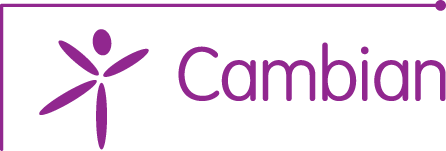Speech and Language Therapy at Dilston College
Speech and language therapy promotes inclusive communication and accessible information. It supports communication-friendly environments; develops the communication skills of those working with and supporting people with learning disabilities; and promotes and creates accessible information so it can be shared in ways that everyone can understand.
Cambian Dilston College offers a total communication environment. This encourages the use of all communication methods to support understanding and use of language, including:
• Speech
• Vocalisations
• Body Language
• Facial Expression
• Gesture
• Makaton
• Written Words
• Symbols
• Objects
• High-tech communication aids
The Speech and Language Therapist works in a number of different ways at college:
During transition- supporting students to start at college
The Speech and Language Therapist (SaLT) will use information from previous placements and initial observations of the student to form a communication profile. The communication profile outlines key information about a student’s communication and any strategies that staff need to be aware of when supporting them. This might happen before a student comes to college, or when they first start.
Universal Service (which all students are able to benefit from)
The Speech and Language Therapist (SaLT) works across the whole college team to ensure that all staff have the knowledge, skills and tools to support students’ communication and interaction.
There are a number of environmental therapeutic approaches which are accessible to all students in college. These include the following:
• Accessible displays and documentation
• Symbols used regularly throughout sessions
• Learn and do boards in classrooms which act as a visual schedule for the sessions
• Meal planning and daily chores visuals in student accommodations
Targeted Input
Some of our students have bespoke communication tools/approaches/strategies which are specific to their needs. These include:
• Now and next boards
• Individual visual timetables
• Choice boards relating to specific parts of the day
• Social stories
These are implemented by the Speech and Language Therapist and used/monitored by the education and care staff who work with the students on a daily basis. Progress and effectiveness is regularly reviewed by the Speech and Language Therapist.
The Speech and Language Therapist also works directly with teaching and care staff to enable them to meet students’ communication needs and know how best to support them.
Specialist:
The Speech and Language Therapist carries out a number of direct interventions with students based on their needs, including the following:
• Social skills group
• Social thinking group - teaching students how to consider things from someone else’s perspective
• 1:1 work with students who use communication aids, to enhance their skills in using the device
• Specific work tailored to individual student’s needs e.g. working on how to deal with change, how to understand and express emotions, how to deal with anxiety around a specific situation etc
Universal and targeted approaches remain in place across the full 52 weeks of the year, ensuring that students have access to their communication support tools at all times and have appropriately trained staff who are aware of their communication needs. Specialist interventions take place during term time, for 38 weeks of the year.
We help students to:
• Tell people what they want and need
• Understand what other people say
• Know what is happening in their day
• Make choices and decisions
• Tell people how they are feeling
• Improve their social skills and develop friendships
